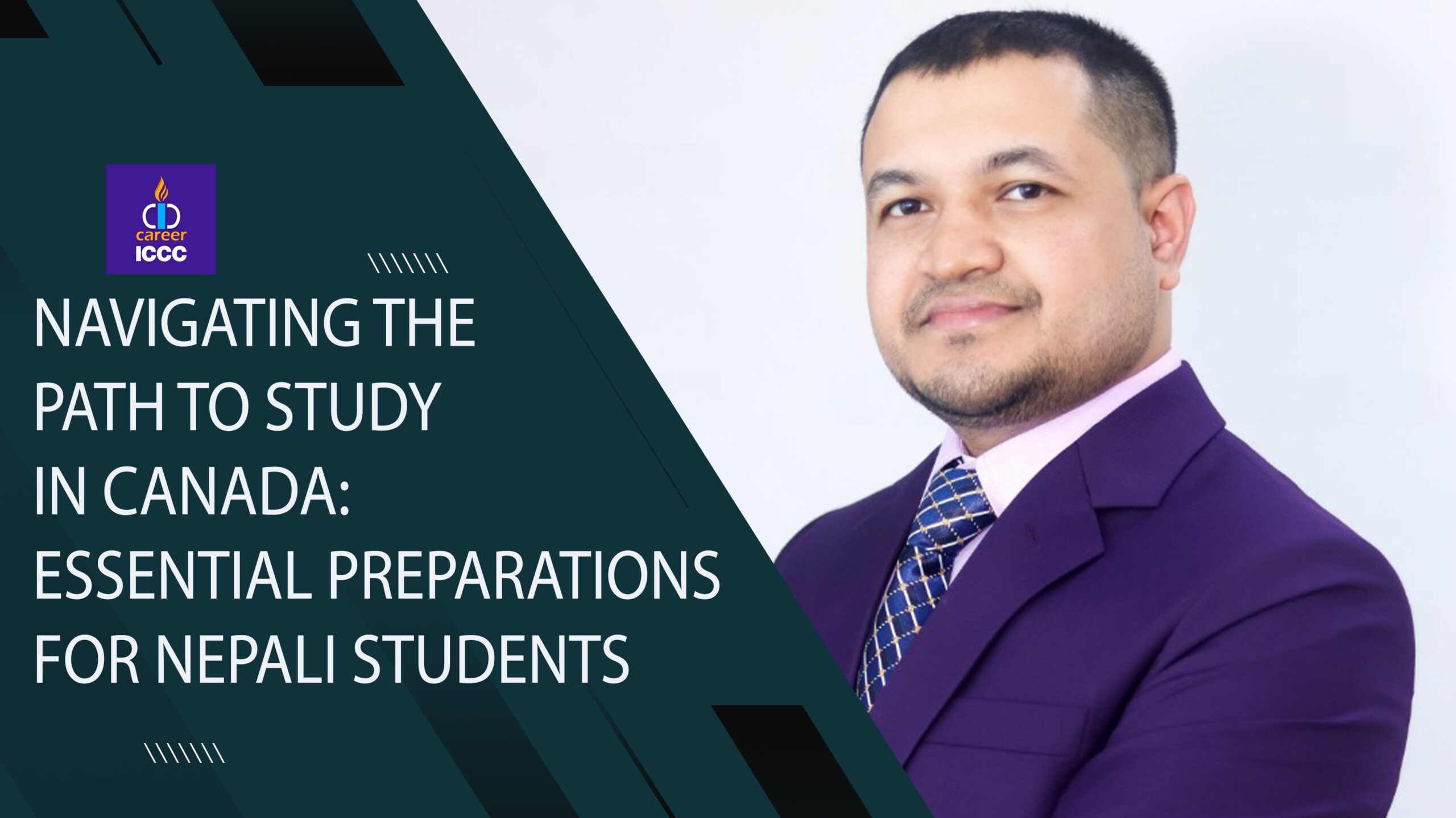
EDUCAST, Canada continues to shine as a beacon of quality education and promising post-study opportunities, Nepali students are increasingly drawn to its shores. However, beneath the allure lies a landscape that demands meticulous preparation and foresight. Ram Khadka, Director of International Career Counselling Centre ( ICCC ), sheds light on the essential steps and considerations for Nepali students aspiring to pursue their education in Canada.

One cannot overlook the financial aspect when contemplating a study venture in Canada. Khadka emphasizes that while the prospect of job opportunities and a student-friendly environment is alluring, financial prudence is paramount. With an investment of 30 to 32 lakhs during the two years of study, and parents potentially extending support up to 50 lakhs, the journey demands substantial financial planning.
A GPA of above 3.0 in class 12 is a prerequisite for eligibility to apply for studies in Canada. Additionally, proficiency in English, assessed through exams like IELTS, TOEFL, or PTE, is crucial. Scholarships often hinge on language proficiency scores, making it imperative for students to invest in enhancing their linguistic abilities.
Instead of fixating on a single university, Khadka advises students to cast a wider net by applying to four or five institutions. Diversifying applications not only increases the chances of acceptance but also opens doors to more scholarship opportunities.
Seeking advice from multiple consultants is encouraged to gain comprehensive insights into Canadian studies. Moreover, meticulous documentation elucidating academic achievements, extracurricular activities, and financial standing is indispensable. Attention to detail in financial documents, including income sources, property details, and educational loans, is crucial for a smooth application process.
Recent policy shifts in Canada, such as the exclusion of post-study work permits for students attending public-private partnership colleges after May 15, 2024, necessitate adaptability in students’ strategies. Enrollment in government colleges or universities becomes imperative to secure post-study work permits. Additionally, changes in dependent loan criteria underscore the importance of staying abreast of evolving policies.
The pursuit of education in Canada holds immense promise for Nepali students, but it demands meticulous planning and informed decisions. Khadka’s insights serve as a guiding beacon, illuminating the path for aspiring students. By navigating the intricacies of financial planning, academic qualifications, strategic applications, and policy dynamics, Nepali students can embark on their Canadian educational journey equipped with confidence and preparedness.
Write your comment